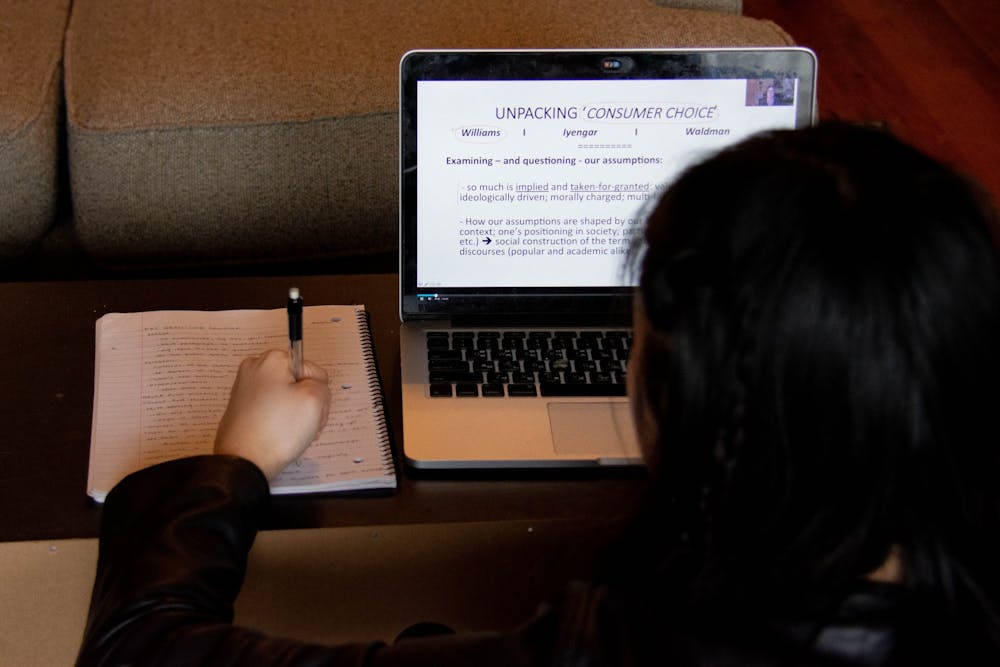With students back on Grounds and the spring semester in full swing, cases quickly shot up to their highest numbers since last spring’s fiasco. Certain decisions seemed like necessary precautions to ensure the safety of students, faculty and staff on Grounds, such as the moving up of the deadline to submit booster proof. Others felt like half-hearted measures that likely won’t do much to stop case numbers — like the food and drink policy that has already been rescinded and acted more as a gesture of caring than a meaningful policy. Even worse, Gov. Youngkin’s new executive order means that even with our high employee vaccination rates the University now has to step back and will only “strongly encourage anyone who has not done so already to get vaccinated or boosted as soon as possible.” And after a legal decision issued by Attorney General Miyares, students are no longer required to be vaccinated either. A much better approach is necessary if the administration is serious about stopping cases. By requiring professors to record classes, students and faculty could both minimize the possibility of asymptomatic spread while simultaneously broadening accessibility for all students.
There are obvious qualifiers to recorded classes that must be considered. For one, things like hands-on activities won’t transition as well, so labs and discussions seem outside of the scope of such an endeavor. Generally speaking though, the same concerns should not apply to recorded lectures — issues like physical attendance and the need for active in-person collaboration are not as applicable. After all, for a student who is sick, unable to make it to class or simply going through a difficult time in their life — missing the active aspect of participation is to be expected. The key to fixing those components of learning comes in through communicating with one's professors. It is also important to clarify that recording classes should not be used in the same way as Zoom classes. After the 2020-21 academic year, I think we can all agree that Zoom classes were far from the most conducive environment for learning. The practice of recording seminars would not mean a return to all online classes but rather an added component to in-person teaching that will lower case numbers and more.
During fall semester last year, I saw many students who exhibited clear signs of sickness — from the cold to the flu to everything in between — who were showing up to in-person classes that had no online option. I am sure anyone who took Microeconomics last semester will remember a number of the lectures in McLeod Hall where there was nothing but coughing every 10 seconds or so. It did not help that there have also been problems with masking compliance in many of these same classes, even among those clearly coughing and sneezing. Students should not be forced to choose between public health and falling behind in a class — particularly when there is a clear solution. While many professors are more than willing to help students cover material they may have missed, not everyone is so charitable. By taking the initiative to record classes, everyone would be able to make healthier decisions for themselves and those around them.
Ultimately, recording classes will increase accessibility for all students. Recordings would help fight the disadvantages faced by certain students — those who have difficulty attending class due to jobs or requirements to care for family or those who have mobility issues and difficulty navigating Grounds for instance. If the University wants to truly support all of its students regardless of background, then a measure as simple as recorded lectures could make all the difference.
It's also important to remember that while COVID-19 is the most pressing of our health concerns, the University is not exactly well known for the success of its mental health services — many students and even faculty feel Counseling and Psychological Services and, by extension, the administration have little care for our mental wellbeing. While I believe the biggest concern naysayers would have about recording classes is that it would encourage laziness and for students to skip classes, I am personally not so certain that would be the case. For many, the cause of burnout that leads to missing classes is the plain fact that there is no alternative other than showing up or getting left behind. Students push themselves to their limit until they can’t keep up anymore. Recorded lectures would greatly increase the ability of students to prioritize their mental health without jeopardizing their ability to succeed in class.
The only other real concern with recording classes is the potential for cheating during exams — however according to the Honor Committee’s Statistical Transparency Reporting Portal, there was a decrease in cheating in the University’s first all online semester for the majority of schools. The McIntire School of Commerce was a sharp exception to this general trend — this would appear to be a more localized problem though that cannot be chalked up to simply the presence of recorded lectures. As a result, I call on the University to recognize the overwhelming benefit of recorded classes and take a step forward into the future for the health and safety of us all.
Ryan Lanford is a Viewpoint Writer for The Cavalier Daily. They can be reached at opinion@cavalierdaily.com.
The opinions expressed in this column are not necessarily those of The Cavalier Daily. Columns represent the views of the authors alone.







